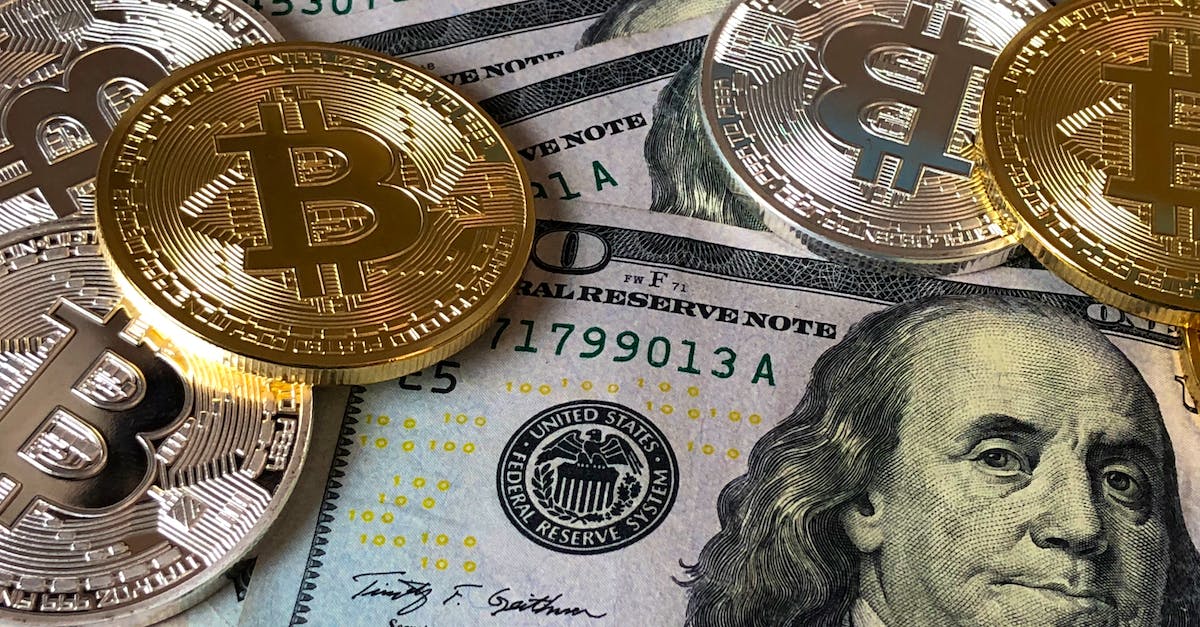As the digital world collides with finance, crypto gaming has emerged as a new frontier for entertainment and investment. But with innovation comes new challenges, particularly in preventing money laundering. You’re about to dive into the complex world of Anti-Money Laundering (AML) measures within the crypto gaming industry.
You’ll explore how anonymous transactions and decentralized platforms can be a haven for illicit activity. Understanding the AML strategies being implemented to combat these risks is crucial, not just for regulators, but for anyone involved in the burgeoning crypto gaming space.
Stay tuned as we unravel the intricacies of AML in crypto gaming, and what it means for the future of digital currencies in interactive entertainment. It’s a pressing issue that’s shaping the industry and one you can’t afford to ignore.
Table of Contents
ToggleThe Rise of Crypto Gaming
In recent years, you’ve witnessed an unprecedented surge in the popularity of crypto gaming. What was once a niche hobby has blossomed into a phenomenon, as blockchain technology offers gamers a new realm of possibilities. With the integration of cryptocurrencies, players are not only enjoying immersive gameplay but also experiencing true ownership of in-game assets and potentially earning through play-to-earn models.
Key Growth Metrics reveal that the crypto gaming sector isn’t just growing; it’s thriving. As of early 2023:
- The number of active crypto gamers has reached millions worldwide.
- The total value locked in gaming-related DeFi projects amounts to billions of dollars.
- There has been a notable increase in the number of blockchain-based games launched each quarter.
In the face of this growth, you’ll find that crypto games are leveraging the blockchain to deliver not only entertainment but also financial benefits. Digital currencies facilitate seamless in-game transactions, while NFTs (non-fungible tokens) provide a layer of value and exclusivity, transforming how players interact with games.
These advancements, however, come with new responsibilities and challenges. The pseudo-anonymous nature of transactions and borderless access to crypto games have opened doors for potential money laundering activities. Operators within the crypto gaming space must, therefore, be vigilant and proactive in combating illicit financial flows. Regulatory bodies are beginning to lay down frameworks to ensure that crypto gaming platforms adhere to AML standards, but the path ahead is complex.
Implementing AML strategies includes mandatory KYC (Know Your Customer) processes for players, setting transaction thresholds, and monitoring user activity for suspicious patterns. Crypto gaming platforms are increasingly integrating software solutions that are specifically tailored to identify risks associated with digital currencies.
As you continue to navigate the dynamic landscape of crypto gaming, remember that staying ahead of potential AML threats is not a mere regulatory obligation but a necessity for the industry’s sustainable growth and player trust.
The Challenges of Anti-Money Laundering in Crypto Gaming
When confronting the issue of money laundering within the realm of crypto gaming, you’re met with a series of unique challenges. Traditional financial institutions have decades of experience and established regulations to lean on, while the burgeoning crypto gaming sector must chart its own course through uncharted territory.
One of the primary obstacles is the anonymity that cryptocurrencies provide. While this feature is celebrated for its privacy benefits, it also offers a veil for illicit activities. Combined with the speed and borderless nature of transactions, tracking the flow of funds becomes daunting.
Another challenge revolves around the decentralized and often unregulated nature of the crypto world. With no centralized authority to oversee operations, implementing consistent anti-money laundering (AML) practices proves difficult. This decentralization also means that there’s a lack of standardization in AML procedures across different platforms and jurisdictions, complicating enforcement and compliance efforts.
As you dig deeper into the issue, it becomes clear that the integration of NFTs poses additional complications. Unique and valuable, these digital assets can be easily transferred and traded, potentially serving as a vehicle for money laundering. The fungibility of NFTs can convert illicit funds into seemingly legitimate assets, which can then be reintegrated into the financial system with far less scrutiny.
Despite these hurdles, AML strategies are not just desirable—they’re imperative for the health and future of the industry. Operators in the sector must prioritize the development of robust AML frameworks that address these challenges head-on. Some key measures include:
- Establishing identity verification processes through Know Your Customer (KYC) protocols.
- Monitoring for unusual transaction patterns that may signal money laundering activities.
- Collaborating with regulators to form cohesive policies that tackle the issues specific to crypto gaming.
By implementing such strategies and consistently refining them, you become an integral part of fostering a secure and reputable gaming ecosystem that deters financial crime.
Anonymity in Crypto Gaming: A Haven for Money Laundering
In the realm of crypto gaming, players often revel in the privacy afforded by blockchain technology. This anonymity is a double-edged sword; while it offers security for legitimate gamers, it also creates an environment ripe for exploit by money launderers. The inherent obscurity in crypto transactions means that, unlike traditional banking systems, there’s no straightforward way to track the flow of illicit funds.
Crypto gaming platforms can inadvertently become hubs for dirty money. They offer a plethora of activities, such as in-game asset purchases and prize winnings, which can be manipulated for laundering purposes. Transactors can easily conceal their identity, making it arduous for authorities to connect the dots between transactions and individuals.
Moreover, the somewhat lax regulatory framework around cryptocurrencies compounds the problem. The lack of uniform global regulations allows for loopholes and inconsistencies. Money launderers adeptly navigate these waters, moving funds across jurisdictions, further complicating any potential investigations.
Addressing this challenge starts with Identity Verification. By requiring users to undergo stringent onboarding procedures, gaming platforms can peel away some of the anonymity that shields potential launderers. This includes collecting and verifying personal data and establishing a transaction history that can be analyzed for suspicious patterns.
Transaction Monitoring is another crucial element. Platforms can implement systems that track the frequency, size, and nature of transactions, flagging those that appear inconsistent with a user’s regular activity. Such systems can be trained to detect the sort of irregularities typically indicative of money laundering schemes.
Collaboration is also vital. A united front between gaming platforms, regulatory bodies, and financial institutions can yield more effective surveillance and enforcement. Sharing data and intelligence can expose laundering networks, making it significantly harder for criminals to exploit the anonymity of crypto gaming for illicit ends.
In the end, dismantling the allure of crypto gaming as a sanctuary for money launderers hinges on the industry’s willingness to embrace transparency and work proactively with lawmakers. Robust anti-money laundering protocols must be woven into the fabric of the gaming ecosystem, ensuring that when you’re immersing yourself in the next blockbuster game, it’s not at the cost of enabling financial crime.
Decentralization and the Difficulty of Tracking Illicit Activity
The advent of blockchain technology has birthed a new era of decentralized finance and gaming experiences that cater to a global audience seeking privacy and autonomy. Yet these advancements come with significant challenges, particularly when it comes to policing illicit activities such as money laundering. Unlike traditional banking systems, where financial flows are overseen by centralized authorities, crypto transactions operate on a peer-to-peer basis, making oversight a complex endeavor.
Within the realm of crypto gaming, players often transact using pseudonyms or complete anonymity. This anonymity serves as a double-edged sword – it’s a fundamental feature that attracts users seeking privacy, but it also complicates the efforts of authorities to track and verify the origins of transactions. When money can be laundered through in-game assets or cryptocurrencies without a traceable identity, the system becomes inherently vulnerable to exploitation by bad actors.
Another dimension to the issue is the cross-jurisdictional nature of blockchain transactions. Since these transactions can occur across borders without the need for a central intermediary, determining jurisdiction and the applicable legal framework for oversight can be problematic. Enforcing anti-money laundering (AML) regulations becomes a daunting task when law enforcement agencies must navigate a maze of varying international laws.
To mitigate these risks, gaming platforms are exploring the integration of innovative technologies for identity verification and transaction monitoring. However, the efficacy of such measures depends significantly on user compliance and the sophistication of the platforms’ security protocols. Even then, ensuring absolute transparency and traceability in a system designed to be censorship-resistant and anonymous by nature is a formidable challenge.
The sustainability of the crypto gaming sector hinges on its ability to balance user freedom with regulatory compliance. While this balance is not an easy feat, it is imperative for maintaining the integrity of the space. Robust AML strategies adapted to the decentralized environment are not just beneficial; they’re crucial for the long-term legitimacy and survival of the industry.
AML Strategies in Crypto Gaming: What Regulators are Doing?
As you dive into the intricate world of anti-money laundering (AML) in crypto gaming, you’ll find that regulators are taking significant steps to mitigate risks and ensure compliance. They’re focusing on identifying, understanding, and mitigating the unique challenges posed by this evolving sector.
Regulators are increasingly mandating identity verification processes known as Know Your Customer (KYC). These demand that gaming platforms verify the identities of their users, deterring anonymity which often enables money laundering. They also require transaction monitoring systems that can detect potentially suspicious patterns indicative of laundering activities.
Institutions like the Financial Action Task Force (FATF) are pivotal in setting international AML standards. They have recently extended their Recommendations to include virtual asset service providers, encompassing crypto gaming platforms. This means that countries that adhere to FATF’s guidelines are expected to regulate these platforms just like traditional financial institutions.
The use of blockchain analytics tools is another strategy gaining traction. Such tools help in tracking the flow of crypto assets, making it harder for launderers to conceal their illicit activities. Despite the inherent obfuscation in cryptocurrency transactions, these analytics platforms can trace the flow of digital currencies to identify suspicious activities.
Regulatory bodies are also promoting information sharing among gaming platforms and across borders. This cooperation aims to create a unified front against money laundering, ensuring that fraudsters cannot exploit jurisdictional loopholes.
- Implementation of KYC verification
- Transaction monitoring systems
- Adoption of FATF Recommendations
- Utilization of blockchain analytics tools
- Enhanced cross-border information sharing
Although there’s progress, regulators still grapple with enforcing these measures globally. Continuous evolution in crypto and gaming technologies necessitates that regulatory approaches adapt swiftly to remain effective in combatting money laundering within the digital gaming sphere.
The Role of Exchanges and Wallet Providers in AML Enforcement
In the evolving landscape of crypto gaming, exchanges and wallet providers play pivotal roles in anti-money laundering (AML) enforcement. As the gatekeepers of cryptocurrency transactions, they’re tasked with implementing robust AML protocols to prevent illicit activities.
Exchanges are particularly crucial because they act as the first layer of defense against money laundering. They’re responsible for deploying Know Your Customer (KYC) verification processes that require users to provide identification before conducting transactions. This level of scrutiny is essential to deter the anonymous transfer of funds which could be used for illegal activities.
Beyond KYC, exchanges must also employ continuous transaction monitoring systems. These systems are designed to detect suspicious patterns such as sudden surges in transaction volume or transfers to high-risk jurisdictions. When red flags are raised, exchanges are expected to take appropriate action, which may include freezing funds or alerting authorities.
Wallet providers, on the other hand, are responsible for ensuring that the digital wallets used to store and transfer crypto assets are secure from money laundering risks. They’re encouraged to:
- Integrate multi-factor authentication
- Set up automatic alerts for unusual activities
- Perform regular security audits to identify and rectify potential vulnerabilities
The collaboration between wallet providers and exchanges is vital for a more comprehensive AML approach. Sharing information about suspicious activities can significantly increase the chances of tracing and stopping illicit transactions. Furthermore, by adhering to the Financial Action Task Force (FATF) Recommendations, wallet providers and exchanges ensure their operational practices meet global standards for combating money laundering and terrorist financing.
Through these concerted efforts, the crypto gaming industry can enhance trust and legitimacy, key qualities that attract genuine users while discouraging those with nefarious intentions. As technology advances, exchanges and wallet providers must stay ahead of potential threats by continuously innovating their AML strategies.
The Future of AML in Crypto Gaming
The landscape of anti-money laundering (AML) in crypto gaming is poised for rapid evolution as regulatory frameworks catch up with technological advancements. As you look ahead, the integration of blockchain analytics tools will become more widespread, offering deeper insights into transactional patterns and potential red flags. This foresight into financial flows will empower exchanges and wallet providers to stay a step ahead of nefarious activities.
Emerging technologies like artificial intelligence (AI) and machine learning (ML) are set to play pivotal roles in automating AML compliance. These technologies aren’t just buzzwords; they’re tools that could revolutionize the way suspicious activity is detected. By analyzing vast datasets, AI algorithms can identify anomalies with greater accuracy and speed than ever before.
With the push for enhanced compliance, crypto gaming platforms may be required to adopt stricter AML policies. Here’s what you can expect:
- Stringent Identity Verification: Expect more rigorous KYC procedures to prevent money laundering. Biometric verification methods may become standard practice for additional security layers.
- Real-time Transaction Monitoring: Advanced software will enable real-time analysis of transactions to quickly spot and halt suspicious activity.
- Enhanced User Education: Players will likely receive more information on the importance of AML measures, promoting a culture of transparency and vigilance.
In tandem with these advances, the role of decentralized finance (DeFi) protocols in crypto gaming could complicate AML efforts. Being inherently resistant to censorship and external control, DeFi platforms challenge traditional AML practices. Creative solutions will be necessary to reconcile DeFi’s autonomy with established regulatory requirements.
International cooperation will be crucial in shaping an effective AML framework within the crypto gaming industry. Jurisdictions around the world will need to collaborate to establish coherent policies that protect consumers without stifling innovation. With the convergence of robust AML strategies and cutting-edge technology, crypto gaming’s future is set to be as secure as it is vibrant.
Conclusion
You’ve seen how the crypto gaming sector is evolving with the integration of advanced AML tools and technologies. The path ahead is clear—strengthening AML frameworks is imperative to ensure a secure future for this burgeoning industry. As you navigate the world of crypto gaming, stay informed about these developments and play your part in promoting a safe, compliant environment. Remember, the success of this digital frontier hinges on the collective efforts of players, developers, and regulators alike. Embrace the changes and look forward to a more secure and dynamic crypto gaming landscape.
Frequently Asked Questions
What is anti-money laundering (AML) in the context of the crypto gaming industry?
Anti-money laundering (AML) in the crypto gaming industry refers to the set of laws, regulations, and procedures designed to prevent criminals from disguising illegally obtained funds as legitimate income through gaming platforms that deal with cryptocurrencies.
How are blockchain analytics tools being used in AML efforts for crypto gaming?
Blockchain analytics tools are used to analyze transactions on the blockchain, allowing crypto gaming platforms to identify suspicious activities, trace the source of funds, and ensure compliance with AML regulations.
What role do artificial intelligence (AI) and machine learning (ML) play in crypto gaming AML compliance?
AI and ML contribute to AML compliance in crypto gaming by automating the detection of unusual transaction patterns, reducing false positives, and increasing the speed and efficiency of AML processes.
Will AML policies in crypto gaming become stricter in the near future?
Yes, it is expected that AML policies will become stricter with more robust identity verification measures, real-time transaction monitoring, and improved compliance mechanisms being adopted in the crypto gaming industry.
How do decentralized finance (DeFi) protocols affect AML strategies in the crypto gaming industry?
DeFi protocols pose challenges to AML strategies due to their inherent decentralization and anonymity, making it harder to monitor and regulate illicit fund flows within the crypto gaming industry.
Why is international cooperation necessary for AML in crypto gaming?
International cooperation is necessary to establish unified AML standards, share information across borders, and effectively combat global money laundering activities in the crypto gaming ecosystem.






















